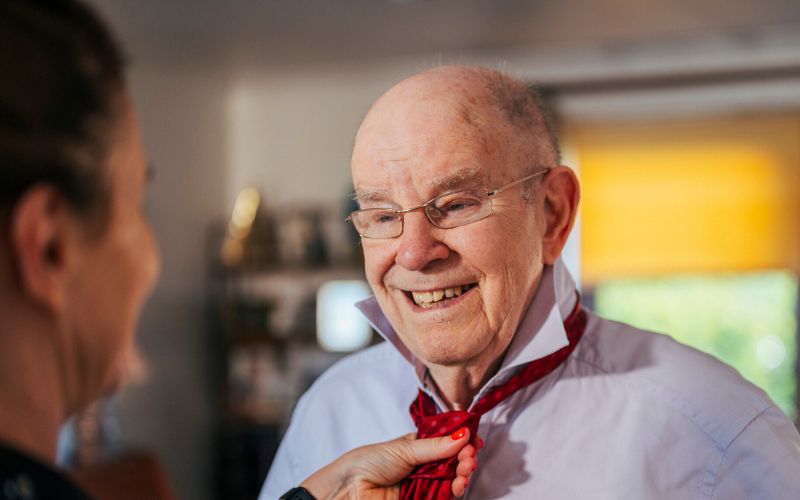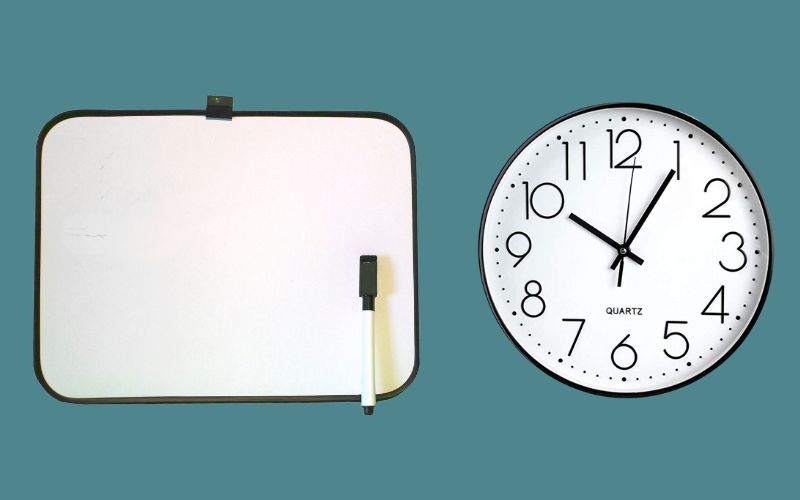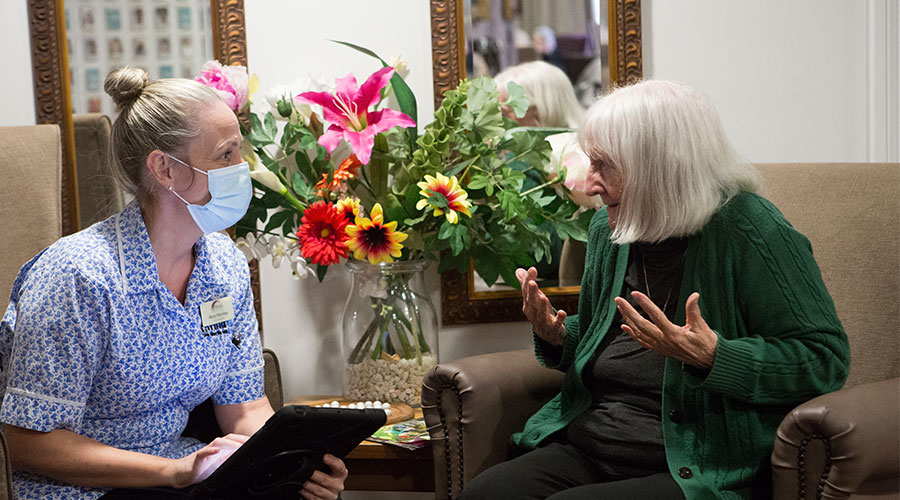Practical Tips to Support People With Dementia in Their Own Home

As someone’s dementia progresses, it can get harder for them to complete everyday, simple tasks. We list some things you can do to help support people living in their own homes.
Equipment that can help with memory
There are some really simple things you can buy that aren’t costly to help people with their memory
- Wipe-clean whiteboards or notepads are useful for writing lists and reminders
- Signs within the home with clear font and a picture to show what it is. Download our toilet, bathroom and lounge signs
- Clocks with large faces are easier to read
- A calendar block or clock that can display the date
- For medication, use a dosette box which has a separate pill compartment for each day of the week. Depending on the medication, a dosette box might be available on the NHS, please check with your pharmacist.
- Automatic pill dispensers - these can be set in advance may be more suitable for those with more advanced memory difficulties.

Help with everyday tasks
There is so much more available to help people stay safe in the kitchen and around the home, including:
- A kettle tipper – this allows hot water to be poured safely
- Grip extensions for controls on ovens and taps
- Timers set to remind people that they have food in the oven or on the hob
- Trays, trolleys and walking frames to help transport items
- Signs to remind the person where things are located – this could be more helpful on the kitchen cupboards
- Non-slip rubber gloves for washing up
- Perching stools or seats might be helpful for areas where people will be standing for a longer period
- Whiteboards or notebooks might also help remind people how to complete tasks.
Help with eating
Dementia can affect a person’s coordination and/or swallowing which affects eating and drinking. There are some things that can help including:
- Easy-grip cutlery with cushioned handles
- Non-spill cups with large handles or built-in straws
- Use cutlery, crockery and tablecloths/napkins that are a contrasting colour so it’s easy to see as people with dementia may have visual problems.
Help in the bathroom
There are things that make the bathroom safer and easier to use, including:
- Grab rails or bath steps for getting in/out of the bath or shower
- For baths – a hoist would help lower and raise a person in and out of the bath and a safety plug will limit the amount of water to prevent over-filling or over-flowing
- Shower or bath seats to help with balance in the bath or shower.
It might be that a wet room becomes a safer option.
There is also equipment that can make going to the toilet easier, including:
- A raised toilet seat
- Grab rails near the toilet
- Commodes and bedpans in the bedroom
- Waterproof mattresses and pillows on the bed
- Pads and incontinence pants.
Help to get around the house
It’s really important to help people living with dementia to stay mobile. There’s equipment that can help with that, including:
- Walking sticks, walking frames and wheelchairs
- Grab rails around the home – especially in areas with corners or doorways
- ramps for wheelchairs
- A stair lift, though expensive could help, especially if staircases are difficult to use
- Hoists and slings to raise or lower people in and out of chairs and bed
- Chairs that help people get up from the chair
- Height-adjustable beds or bed hand blocks which people can use to push themselves up whilst in bed.
Help with the layout of the home
Making changes to the layout of rooms and areas in the home can be helpful for people with dementia, including:
- Moving furniture and fittings to make them easier to access and use
- Specially designed shower and toilet facilities
- Keeping surfaces and floors clear and uncluttered which will help prevent falls but could also help them to feel less confused
- Having good lighting can help keep the person safe
- Using energy efficient appliances will also help to keep costs down if someone was to forget to turn a light off for example.
Outdoor spaces
If the person has an outdoor space or garden, make sure you:
- Make it as accessible as possible with less clutter and if you do have any furniture, painting this a contrasting colour would help
- Marking out paths, steps and painting fences in a contrasting colour to the grass, path or ground could also help them get around the garden safely
- Add benches or seats to the outdoor space.
Things to avoid in the home:
- A lot of pattern, especially heavily patterned or abstract wallpapers and carpets as this can be confusing
- Using dark mats on the floor as this could be mistaken for a hole in the floor
- Shiny surfaces can also be confusing as someone may not realise that what they are seeing is a reflection.
Contrasting colours
As above, contrasting colours can be really helpful to make things extra clear and easy to find for people living with dementia. Here's some tips to help:
- Mark the edges of steps – you could paint this or use a coloured tape
- Toilet seats in a colour that contrasts with the toilet bowl and the floor
- Light switches in a different colour to the wall
- In the bathroom - handrails, taps and towels that contrast with the rest of the bathroom
- Door and cupboard handles that are a different colour
- Cutlery, crockery and tablecloths in a different colour to the table and the food
- Make sure any furniture - inside and outside of the home – is also easy to see.
Other ways we can support you
Need more help in general to understand dementia? Go back to our Memory Loss & Dementia Hub
We also offer dementia training for families and friends of people living with dementia which aims to support you to help them wherever they’re living. The free sessions are 1.5 hrs over Zoom. Sign up here
MHA’s Family Dementia Advisory Group has also written some tips to support the wellbeing of someone living with dementia >
Page last updated: September 2023.
MHA in your community
Find the care home, retirement community, or support group that’s right for you

